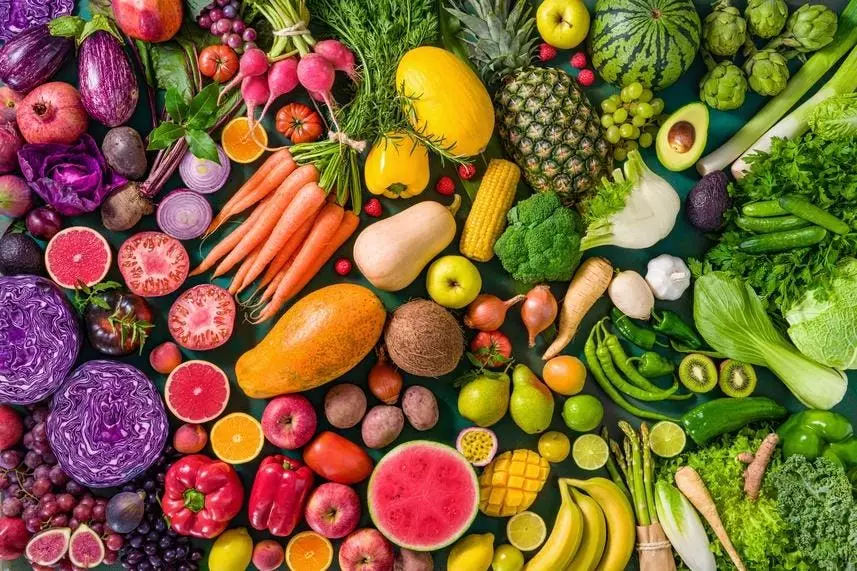The standard wisdom around nutrition is clear: incorporating fresh fruits and vegetables into our diets is vital for optimal health. These foods are packed with essential vitamins, minerals, antioxidants, and dietary fiber that contribute to overall well-being. As technological advancements make fresh produce more accessible throughout the year, innovative methods are emerging that network agricultural practices and consumer preferences. This article delves into the latest developments in the realm of fresh produce, focusing on novel cultivation methods and new crop varieties that can facilitate healthier eating habits.
For consumers in developed countries, various technologies have paved the way for year-round access to fresh produce. Techniques such as refrigeration and controlled atmosphere storage have become standard practices that extend the shelf life of fruits and vegetables. Furthermore, innovations in global transportation systems efficiently connect consumers to international markets, introducing a plethora of imported produce, regardless of season.
To enhance convenience, food producers are also creating ready-to-eat and easy-to-prepare options like pre-mixed salads and “fresh cut” items. These developments cater to a fast-paced lifestyle while ensuring that individuals can enjoy healthy food without the rigorous preparation that often accompanies fresh ingredients. However, the latest innovations hint at an even more exciting future in food accessibility by introducing novel crops and growing methods that challenge the traditional boundaries of personal gardening.
One of the standout innovations gaining traction is the introduction of Duckweed, specifically a domesticated version of the plant known scientifically as Wolffia. This aquatic plant is recognized as the smallest flowering plant and boasts remarkable nutritional attributes. Originating from ponds, Duckweed’s tiny spherical form might appear unassuming, but it packs a punch with its unique profile.
The Israeli company GreenOnyx is leading the charge on this front. Their indoor vertical farming system cultivates Duckweed under the brand “Wanna Greens,” set to launch in select U.S. markets. With an impressive refrigerated shelf life of four to six weeks, this food offers a sustainable option that can easily be incorporated into various dishes, from salads to sandwiches. Moreover, glimpses of its nutritional content have already garnered positive reviews from experts. Nutritionist Dr. Lauren Kaufman has verified that Wanna Greens are high in protein, dietary fiber, beta-carotene, antioxidants, and vitamin B-12—nutrients often derived solely from animal products, thus appealing to vegans and plant-based dieters.
What makes Duckweed even more intriguing is its potential to become a “gateway vegetable” for children, thanks to its mild taste and versatility. By incorporating this unique ingredient into familiar meals, parents may find it easier to introduce healthier choices into their children’s diets. The ability to market such innovative and nutritious offerings could significantly impact the way families approach vegetable consumption.
While innovations like Duckweed tackle the accessibility of fresh produce, other advancements focus on empowering individuals to connect with their food sources through home gardening. Even in urban settings, the appeal of growing one’s own herbs and vegetables remains strong. Many people, however, face challenges like limited space, busy schedules, and concerns that they lack the skills needed to maintain a garden.
Lettuce Grow, co-founded by Jacob Pechenik, offers a solution to these dilemmas by developing user-friendly indoor gardening systems. Their latest product launch targets consumers who seek manageable, hassle-free ways to cultivate fresh produce at home. The compact “Counterstand” vases are not only space-efficient but also come with integrated grow lights designed to foster optimal plant growth indoors. This system allows users to buy seedlings beneficial for a varied diet, including butter lettuce, basil, spinach, and more.
The collaboration with major retailers like Costco provides an exciting avenue for broader consumer outreach. By leveraging Costco’s logistics, Lettuce Grow delivers live plants ready for immediate growth, thereby lowering the barriers many face when venturing into gardening. Offering a straightforward pathway to growing greens in urban households could greatly contribute to the larger goal of enhancing dietary health while minimizing food waste at home.
As these innovations—the cultivation of Duckweed and the rise of accessible home gardening—take center stage, their impacts resonate through both convenience and health. They symbolize a shift away from solely relying on traditional agriculture, empowering consumers to make healthier dietary choices with ease and enjoyment. While neither of these developments is a panacea for global food challenges, they represent essential steps toward sustainable eating practices.
By marrying modern technology with a commitment to nutrition and self-sufficiency, these pioneering initiatives are set to redefine our relationship with food. As society evolves, the focus on enhancing dietary quality through innovative solutions will undeniably play a significant role in shaping a healthier future.


Leave a Reply